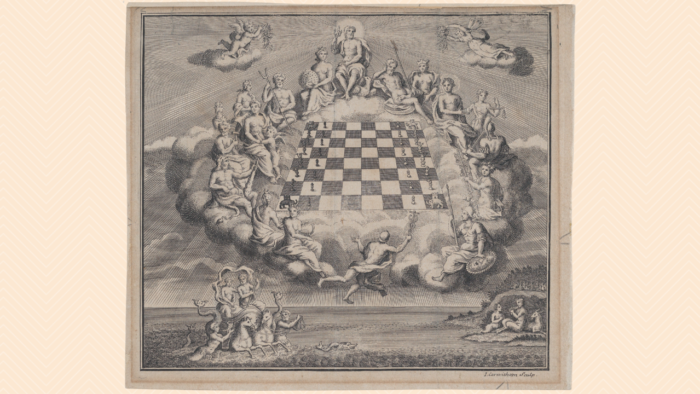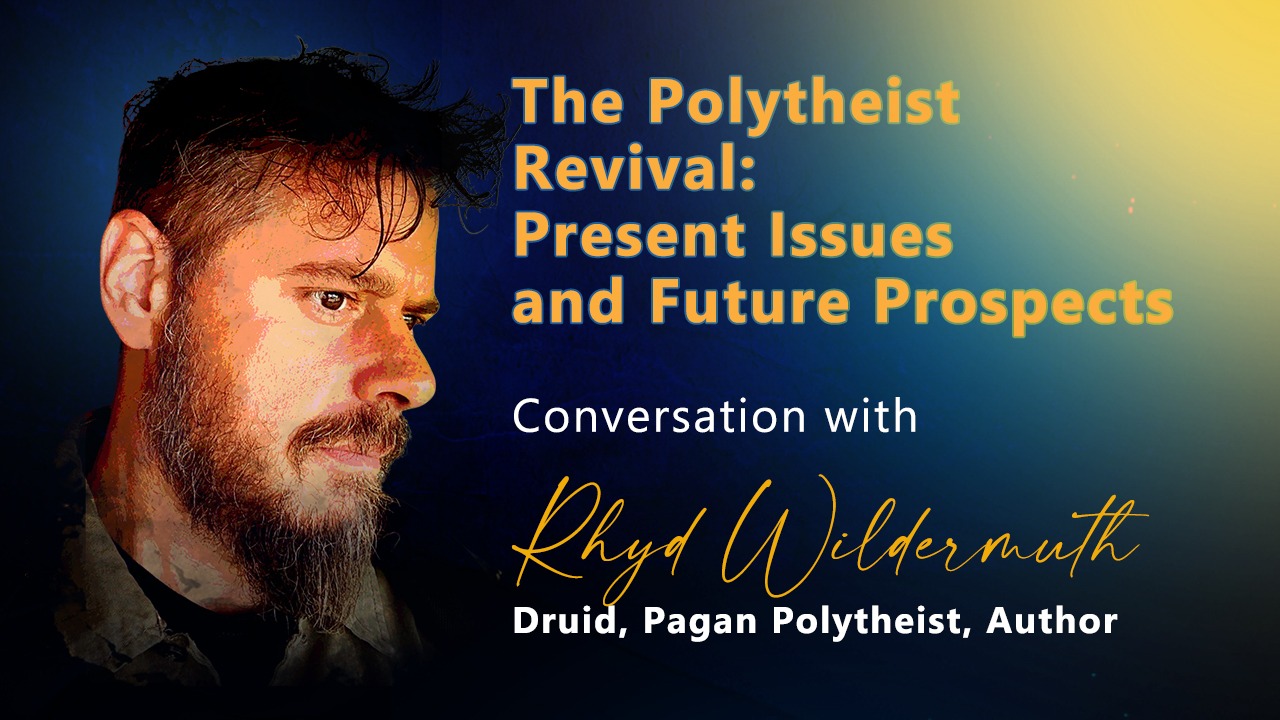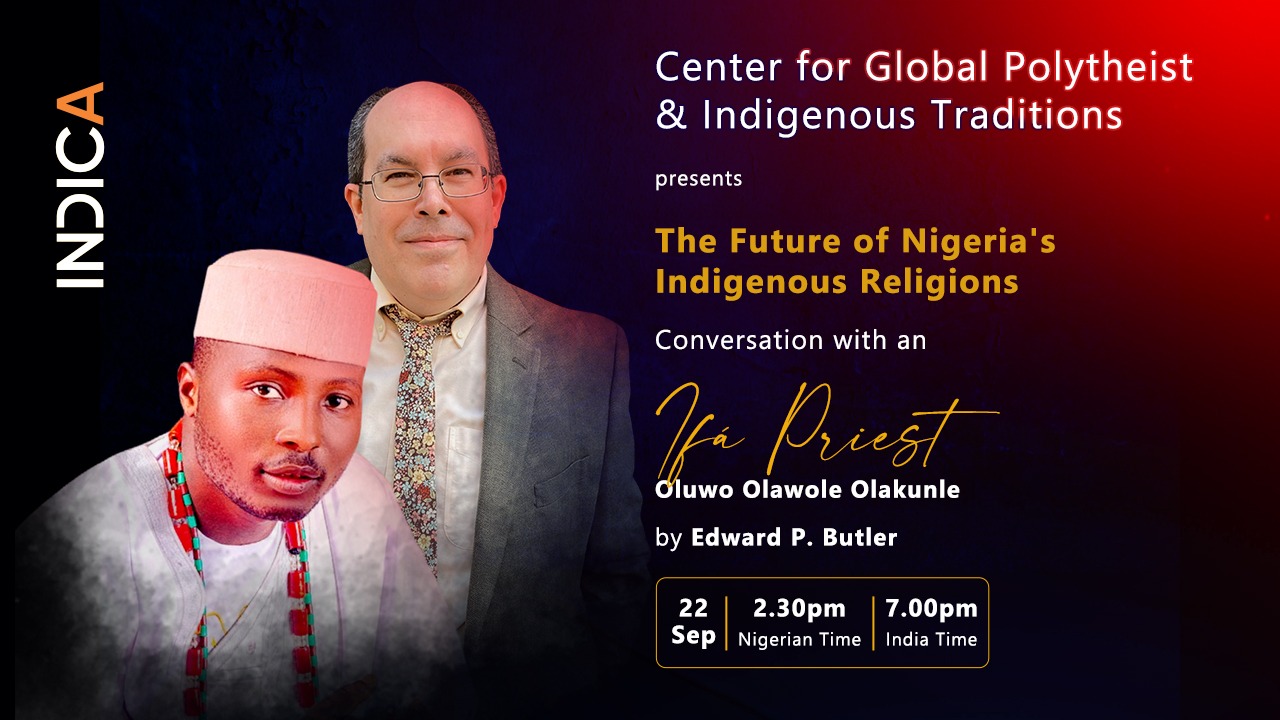[Originally published in Ascendant: Modern Essays on Polytheism and Theology, ed. Michael Hardy (Bibliotheca Alexandrina, 2019), pp. 63-80.]
Polytheism, William James once said, is a term which “usually gives offense”.[1] Unfortunately, this is scarcely less true today than when he said it more than a century ago. Academic discourse having grown more subtle, however, in the interim, we are more likely today to encounter the claim that polytheism in effect never existed at all, or scarcely ever, than to meet with the direct denunciation of polytheism as ignorant, incoherent, and doomed to supersession. ‘Polytheism’, we are told, is a term that originates in Christian polemics and hence is ripe for deconstruction. This assertion is, in the first place, debatable, inasmuch as a cursory search of Liddell and Scott’s lexicon shows that forms of the word are attested as early as Aeschylus.
Beyond this, however, and as a rule of thumb, we ought to beware of the deconstructive tendency when it is turned toward the subordinated term in an opposition, and deployed in such a fashion as to strengthen the term which is already hegemonic. We live in a world in which monotheism is hegemonic, and has been for a very long time. In such an environment, it is entirely possible to find everywhere one turns the mere illusion of debate, in which both sides tacitly shore up the hegemonic ideology, however bitter their differences on matters that do not fundamentally affect the values and presuppositions shared by both sides. Monotheism, I would argue, is not merely an instance of such a hegemonic ideology, but is the paradigm of all of them, totalizing ideologies of every kind having been informed and shaped by monotheistic polemics spread throughout the world by Christian power both hard and soft, including in manifold secular guises. Under such circumstances, if we are to stake any claim to intellectual honesty and integrity, extraordinary care must be taken with any manifestation of genuine alterity to the hegemonic regime. And nothing could be more alien to monotheist hegemony than polytheism, certainly not atheism, with which monotheism in the hegemonic form it has assumed in the world shares many structural characteristics. Wherever polytheism raises its head to speak on its own behalf, it can expect only opprobrium, usually from every side in whatever debate is currently raging.
Let us, therefore, give the notion of polytheism some air to breathe. Rather than imposing upon it some constraining definition designed to close in and smother it as quickly as possible, let us say simply that wherever we find a cultural field in which a term easily argued to be translatable as ‘deity’ has a plural form, and license is given within this field for directing religious regard to such deities, whether at the same time by the same worshiper, or serially by them, or simultaneously by different worshipers, that we prima facie find here polytheism, whether present or past.
But then we shall shortly find this little Latin phrase weaponized against the notion of polytheism as existing on any but a surface plane. We shall be virtually buried in assurances from every direction, and on every basis, from the ostensibly ethnographic to the purportedly logical, that any multiplicity of deities in a given field is purely phenomenal, or merely historical, or a concession to conditions of embodiment, or to the demands of social accomodation, especially of the large population of the ‘unenlightened’. But inasmuch as there will be plenty of time for these voices to silence finally that of the Other, if they can, and given that they have already made their case over centuries and possess every organ of institutional authority, let us see if we cannot allow the phenomenon of religious regard for many Gods to articulate its own conditions of possibility, and if it is really so incoherent, to run on its own, unassisted, into whatever dead end supposedly awaits it.
In this effort, we possess some intellectual resources, and they are not meager, from Platonism, of which the entire Western tradition of thought has been termed a series of footnotes, at least when the religious affiliation of Plato and his successors is not at issue. For more important than that Plato should be Plato, is that Plato should be a monotheist. Indeed, in another of the merely apparent debates to which I referred above, no less a critic of Christianity and even of monotheism as Nietzsche refers derisively to Christianity as ‘Platonism for the masses’. This would, however, be news to the polytheistic Platonists whose intellectual opposition was so vigorous in late antiquity as to require the services of the state to silence it through legislation in 529 CE that prevented the unbaptized from public teaching. Only then did Platonism become safe for Christian appropriation.
In fact, Platonists had ranged themselves against monotheism going as far back as when they might first be reasonably expected to have encountered it. Plotinus, in the 3rd c. CE, already wrote against those, in his day an undifferentiated assortment of Christians and others we typically term ‘Gnostics’ today, who had in common that they “contract the divine into one”.[2] Efforts to make Plato himself out to have been a monotheist stumble over the simple fact that they require us to regard as Plato’s ‘God’ things that he never termed a God, such as the Idea of the Good from the Republic, while disdaining as unworthy of his sincere religious regard those actual Gods references to Whom fill the pages of his work.[3]
Moreover, these efforts toward a monotheist Plato demand that we regard his most dedicated interpreters from later antiquity, the entire tradition of systematic Platonism culminating in Proclus and Damascius, the last head of the Academy in Athens before its succession was terminated by force of law, as having perverted the tradition they alone upheld. For there was no systematic interpretation of Plato in antiquity that was not polytheistic, and modernity has not supplied one, inasmuch as systematic interpretations of Plato have been out of fashion since the philological turn in the study of ancient philosophy in the latter 19th century.
There is a model of polytheism which has, however, cast a spell upon modern interpreters to the degree that many of them will dispute that anything differing from it ought to be considered ‘polytheism’ at all. This model is readily identified in the poems of Hesiod and Homer, and can be conveniently characterized as a division of labor, or a balancing of prerogatives. Hence Hesiod speaks of the timai, the ‘honors’ or prerogatives of each God, which are allocated to them in the Olympian order established by Zeus after the resolution of the conflict of theomachy, and maintained by his powers of persuasion and his art of negotiation, though not without the potential for further conflict. The complexity of the Hesiodic or Homeric conception of such timai having been discarded, modern readers interpret the timai accorded to the Gods as essentially the same as the stereotyped ‘functions’ with which moderns are accustomed to identify the Gods, despite the fact that the very being of a God could hardly be something accorded them in such a process of mediation. This model, due to the disproportionate influence of the poets and tragedians on our image of Hellenic polytheism, and, in turn, of our image of Hellenic polytheism upon our notions of polytheism as such, is then presented most of the time as though it is the very essence of polytheism, both by polytheism’s detractors as well as by many who would defend it, at least in the abstract.
And yet we know from the careful research of those such as H. S. Versnel[4] that this model bears little resemblance to Hellenic polytheism as actually lived and practiced by worshipers. The typical worshiper petitions a God less based upon what that God’s ‘function’ might be, than upon their sense of proximity to that God, the density, so to speak, of the fibers connecting them to that divine individual, at least beyond the glancing, peripheral interaction. When they approach such a divine individual, they do so generally not as though addressing a being of strictly limited power, but rather one whose power is virtually unlimited. And when they petition a group of Gods, it is with a sense that these Gods act in concert or at least in harmony, for the most part, and not as a field of dynamically suspended oppositional forces, as attractive as this model might be to moderns to describe phenomena to which they think the Gods ought to correspond. Furthermore, when things go wrong, even in tragedy, the ancient worshiper does not tend to blame the conflict of divine prerogatives, so much as they speak of the inscrutability and infinite depths of each divine individual or of the divine categorically.
Platonists in antiquity, who were not under the spell of this division of labor or conflict of forces model either, say that a mortal soul cannot know the number of the Gods; that there is a floor on this number, which is provided by ontology—that is, in effect, by the division of labor—but a ceiling only in the sense that the number of Gods cannot be actually infinite.[5] (This is for reasons which do not have to do with theology, but with their conception of what an actual infinity means.) Beyond this floor and ceiling, however, mortals have no means to determine how many Gods there are. There are, that is, at least as many Gods as there are in a given pantheon. But there are probably many more, inasmuch as Platonists were not given to think that only one nation had received theophany, and while some Gods might have appeared under multiple names and guises in different lands, their general approach toward such claims was reserved. Plato himself uses the names of Egyptian Gods in his writings without making any claim that they are Greek Gods in disguise,[6] though he does not mind transmitting such a claim second- or third-hand with respect to Athena and Neith.[7] Later, Iamblichus (De mysteriis VII.4-5) would explicitly affirm the dictum that one should not translate the foreign names of the Gods in religious texts, and the view of pagan Platonists down to the end of antiquity seems to have been that the divine realm was made up of an indefinite multiplicity of living immortal individuals, the kind of entities who have proper names, rather than common nouns which may be translated from one language to another.
Moderns under the influence of the division-of-labor model, however, purport to know exactly how many Gods there are—somewhere around a baker's dozen—precisely because these are the number of divisions in an a priori intellectual model of the cosmos such as Jan Assmann, in his theory of ‘cosmotheism’, thinks to be the essence of polytheism. According to such a view, the point of polytheism is not contact with individual living immortals, not theophany, but cosmology, creating a map of the forces active in the cosmos. Again, Proclus, e.g., says that a mortal soul cannot know all the properties of any God (In Crat. §174, 97.1-5). But moderns purport to know just what each God does, because they have reduced their identity to that of some single, discrete power which is more or less easily defined, if not in a word, then at any rate in a paragraph.
As a result of the uncritical and almost universal adoption of this division of labor or conflict of powers model by moderns seeking to conceptualize polytheisms, ancient thinkers who do not regard this model as fundamental and feel free to critique it are taken as critical of polytheism as such, even in the absence of any explicit expression of intention on the part of those thinkers to place the Gods Themselves in question—indeed, even in the face of explicit denials that they are engaged in anything like this. A straw man of polytheism having been substituted for the genuine article, we miss the very point of what these thinkers were trying to accomplish.
For example, Plato in his Euthyphro makes a point of raising the issue of conflict among the Gods (7a & sqq.) in order to set the stage for his inquiry into the essence of holiness or piety. Such conflict is often considered to be inherent to polytheism and as implied, in particular, by the division of labor model, it being assumed that from out of this conflict some sort of equilibrium emerges. Indeed, this is frequently praised as the very wisdom inherent in polytheism, because it expresses ‘Nature’, and certifies the status of ‘paganism’ as ‘nature religion’. ‘Paganism’ even plays a heroic role in this Romantic view, affirming deities who are ‘immanent’—i.e., straightforwardly identified with natural forces and having no personhood or agency—against the ‘transcendent’ divinity of Christianity. Even beyond the fact that this view of ancient polytheisms responds entirely to modern issues and concerns, it leads to the erasure of polytheism insofar as the systemic unity of ‘Nature’ overrides any meaningful individuality for the Gods.
Sometimes, indeed, conflict is seen as necessary even to individuate the Gods, although persons such as ourselves, notably, are not generally thought of as needing to be in conflict in order to remain distinct from one another. In the dialogue, Socrates never directly questions that the Gods do have certain conflicting values, but he does encourage Euthyphro to think harder about how to understand this conflict. The outcome of this inquiry, which lies beyond this single dialogue in the Platonic corpus as a whole, is thwarted at the outset, however, if, in the general fashion of modern commentators, we assume that Socrates regards the notion that the Gods would have differing values as a reductio ad absurdum of the very notion of many Gods. The Euthyphro draws no clear conclusions from its arguments, but it is guided throughout by the tension between the Gods having unique agency, on the one hand, while also possessing an orientation toward some sort of general cosmic good on the other, a dialectic evidently too fruitful to collapse, and which is sustained by mainstream beliefs about the Gods which we have no good reason to think that Socrates and Plato do not share. Indeed, it is clearly possible for Socrates and Plato to conceive of Gods as distinct from fixed roles, or else the question of their choice or agency could never even arise.
Another example can be drawn from Vyasa’s commentary on the Yoga Sutra (I. 24). The commentator is explicating the verse which defines the īśvara, or ‘lord’ who is the object of devotion, as “a distinct puruṣa [person] untouched by the vehicles of affliction, action and fruition,” (trans. Rama Prasad). That is, the God as object of the devotional regard is affirmed by the Sutra as constituted neither by any kind of limitation or lack (‘affliction’), nor by a particular pattern of activity or function (‘action and fruition’). The commentator stresses further that the īśvara is, in his “divinity … free from excess or equality. It is not exceeded by another divinity. Whichever is the highest, must be the divinity īśvara. For this reason, wherever there is the culmination of this divinity, that is īśvara,” (Rama Prasad, p. 42).
Īśvara is hence a state which corresponds to the highest positing of divinity; but īśvara is for some Viṣṇu, for others Śiva, for others Durga, and for others some other God or Goddess. Now unless we have presupposed that this difference of worshiping this or that īśvara is trivial, merely contingent, which would be to dismiss polytheism itself straightaway as merely contingent, then we must rather see the whole purpose of the text as in fact freeing the space for just such unique divine individuals as these, who are to be constituted not by their functions or relations, but just as who They are, similarly to how we ourselves are regarded as unique, and not reducible to what we do or to some way in which we can prove ourselves different from everyone else. With respect to equality, the commentator continues:
Nor is there any divinity equal to that [īśvara]. Because, in the case of equality, if one of the two equals says with reference to a common object of their attention, ‘Let this be new’, and the other says, ‘Let this be old’, then one thing only necessarily happening, unrestrained fulfillment of the wish is interfered with, and one becomes less than the other. Further it cannot be that two equals should at once possess an object desired by both. Because the wishes are contradictory. Hence he alone is īśvara whose divinity is free from equality or excess, and he is a distinct puruṣa. (Trans. Prasad, p. 42)
We should note that equality, as well as other fundamental relations like sameness and difference, likeness and unlikeness, are all negated in the First Hypothesis of Plato’s dialogue Parmenides from applying to the One,[8] or ‘Unity’ as such. In this fashion, the dialogue affirms that unity, that is, individuation, is not dependent ultimately upon relations. Absolute individuality is possessed by the Gods Themselves as exhibiting the highest mode of existence. Such an absolute individual, perfectly unique, would necessarily not be dependent for their existence as an individual upon being differentiated from others, nor would their uniqueness constitute in itself a substantive property that such individuals would have in common or that would render them equal, because the very sense of ‘uniqueness’ is that it is not a property that would form a basis for comparison. Indeed, in Plato’s Timaeus (41c), equality operates to separate two modes of divine production: the Demiurge explains that were he to create mortal souls himself, they should be equal to the Gods, but if they are created by the ‘Younger’ Gods, that is, by the Gods who operate entirely within the cosmos, and not partially within and partially beyond it,[9] then they shall be unequal with the Gods and, by the same token, equal to one another.
Returning to Vyasa’s commentary on the Yoga Sutra, then we can see an analogy to these Platonic reflections. Vyasa refers to a common object of two Gods’ wish or will. It is the law of non-contradiction, as applied to this object of the Gods’ intentionality, that renders equality impossible for the God qua God, that is, for the God in Their highest expression, as īśvara or ‘lord’. Whatever is the state of affairs for cosmic beings cannot be attributed to the īśvara as the product of a divided will, of a division of labor, but must rather be regarded as the product of the total will of the īśvara.
We may compare this with Plato’s affirmation in the Republic (379c-380c) that the inhabitants of the guardians’ city must be taught to regard the Gods, strictly speaking, as the agents only of good in the cosmos, and hence not of everything that comes to be. This contrasts with Plato’s own project as stated in the Phaedo (97c & sqq.) to understand all things according to the good. This latter project obviously supercedes the narrower project of the guardians’ city. The difference between the two projects is essentially that the concept of what is good in the guardians’ city is simple and worldly, and cannot sustain esoteric inquiry into the goodness of apparent evils. The guardians, accordingly, will likely be taught a theology of divided wills and perhaps even a division of labor.[10]
A total will is by definition not a partial will and not a consensus or equilibrium of wills; but who is to say that polytheism must consist of a multiplicity of partial divine wills, and not instead of a multiplicity of total divine wills? Of a multiplicity of finite Gods, rather than a multiplicity of infinite Gods? It is this polytheism that corresponds to the vision of the unitary agency of goodness from the Phaedo, and the unitary agent(s) implied by it.
We see in this fashion how texts treated by modern commentators as involving critiques of polytheism itself can instead be seen as critiques of the supremacy of the division of labor model that the modern commentators treat as synonymous with polytheism itself. In the case of the commentary on the Yoga Sutra, it is clear that the author is interested in a notion of divinity in which a God would be a distinct ‘person’ (puruṣa) and an agent (implicit in the term īśvara) who is specifically not constituted according to such a division of labor. And we know that in fact, there were and are many such īśvara_s. This fact either signifies that the state of being īśvara defines a different model of polytheism, which is what I have argued, or that the multiplicity of īśvaras must be a mere contingency. But what would give a modern interpreter license to determine that an indisputable element of the practice of a religion is merely ‘practical’ and inessential?
If we are to avoid such interpretative arbitrariness, we must at least recognize the possibility that these authors are arguing instead on behalf of a different model of polytheism which they possess in their cultural frame of reference. This model is every bit as legitimately polytheism as the division of labor or conflict of powers model—indeed, more so, for the bhakti model is best understood as radical or unqualified polytheism, based on the pure and direct theophany of many unique Gods.
[1] William James, A Pluralistic Universe (New York: Longmans, Green and Co., 1909), p. 310.
[2] Enneads II.9.9.36-7; see also Porphyry, Life of Plotinus 16.1-11. On Plotinus’ critique of monotheism, see my “Plotinian Henadology,” Kronos Philosophical Journal Vol. 5 (2016), pp. 143-159.
[3] On Plato’s polytheism, see my “Plato’s Gods and the Way of Ideas,” Diotima: Review of Philosophical Research 39, 2011 (Hellenic Society for Philosophical Studies, Athens), pp. 73-87; see also Gerd Van Riel, Plato’s Gods (Farnham: Ashgate, 2013).
[4] See, e.g., Coping with the Gods: Wayward Readings in Greek Theology (Leiden: Brill, 2011).
[5] On this generally, see my “The Gods and Being in Proclus,” Dionysius Vol. 26, 2008, pp. 93-114, esp. pp. 107ff.
[6] Thoth: Phaedrus 274c; Ammon: ibid., 274d; Isis: Laws 657b.
[7] Timaeus 21e.
[8] Parm. 140b-d for Equality specifically.
[9] What Proclus terms ‘encosmic’ Gods as opposed to ‘hypercosmic’ Gods.
[10] For further commentary on the Republic, see my “Esoteric City: Theological Hermeneutics in Plato’s Republic,” Abraxas: International Journal of Esoteric Studies No. 5, 2014, pp. 95-104.




